African American Studies
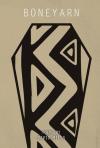
|
Boneyarn: A Poetry Reading and Discussion about Slavery in New York City | In this program, poet David Mills will read from and reflect upon the research behind his recent collection, Boneyarn, the first-ever book of poems about slavery in New York City. The city holds the oldest and largest slave cemetery in the United States—the African Burial Ground—which was open from 1712 to 1795 and is located in Wall Street’s shadows. Fifteen thousand enslaved and free Blacks, some Native Americans, and poor whites are buried there. Mills creatively “excavates” the tragedies and triumphs of New York’s enslaved and free Black community. |

|
Slave Rebellions in the Atlantic World | Beyond Britain’s North American mainland colonies, European colonies in the Caribbean and South America were also sites of imperial resistance movements in the Age of Revolutions. In this program, AAS President Scott Casper will moderate a conversation with Vincent Brown and Marjoleine Kars about slave rebellions in the larger Atlantic world, with a focus on Jamaica and the Dutch colony of Berbice. The discussion will cover stories of slavery, warfare, and rebellion and highlight the experiences of the enslaved people who participated in them. |
| |
Recovering the Lost Years of John Peters and Phillis Wheatley Peters | Though the early years of Phillis Wheatley’s life are well-established, the details of her life after she became Phillis Peters upon her marriage to John Peters, a free Black shopkeeper in Boston, have been more difficult to discern. In this conversation, Henry Louis Gates Jr. will discuss with Cornelia Dayton her groundbreaking article, recently published in the New England Quarterly, which uses a cache of Essex County legal papers to shed light on this period of Wheatley Peters’s life. |
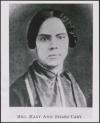
|
The Many Legacies of Mary Ann Shadd Cary with Nneka D. Dennie and Kristin Moriah | Mary Ann Shadd Cary (1823–1893) was a trailblazing Black feminist, abolitionist, educator, activist, newspaper editor, and lawyer. Her many achievements include becoming the first Black woman to edit a newspaper in North America when she founded the anti-slavery newspaper, The Provincial Freeman in 1853. |
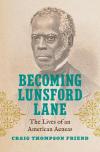
|
Becoming Lunsford Lane: The Lives of an American Aeneas | Lunsford Lane (1803-79) became a folk hero to many enslaved Southerners, as well as a generation of abolitionists, when he challenged the rules of enslavement and, later, pushed the boundaries of free citizenship in North Carolina. As the author of a unique “slave narrative” and speaking partner with some of the era’s greatest orators, including William Lloyd Garrison, Henry Highland Garnett, William Wells Brown, and Frederick Douglass, Lane became a celebrity. Gradually, however, the persona he created faltered and his influence waned. |

|
Just Teach One: Early African American Print | Scholarly transcriptions of African American literature, with basic editing and apparatus. |

|
Like Children: Black Prodigy and the Measure of the Human in America | In this virtual program, Camille Owens draws from her book, Like Children: Black Prodigy and the Measure of the Human in America (2024) and nineteenth-century archives to present new insights into Black childhood. Highlighting examples of Black children’s performances, cultural representations, and labor in the 1800s, Owens illustrates how Black children were used in the construction of white childhood, in the empowerment of white men, and in the measure of the human—and explores what it means for the study of American childhood to recognize Black children at its center. |

|
Black Boys, Dolls, and Textual Histories: Alice Dunbar-Nelson’s “His Heart’s Desire” (1900) | This virtual forum features Jean Lutes, Denise Burgher, Trinity Rogers, and Brigitte Fielder of Taught by Literature, a collaborative digital humanities project that re-centers Black women writers, beginning with the work of African American author and activist Alice Dunbar-Nelson. |
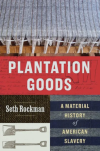
|
Plantation Goods: A Material History of American Slavery | In this talk, Seth Rockman, author of Plantation Goods: A Material History of American Slavery (November 2024), reveals the biggest stories of early American history through the most mundane artifacts: shoes manufactured in Massachusetts for the use of enslaved people in Mississippi, for example, or woolen dresses stitched in Rhode Island for enslaved women in South Carolina to wear. |
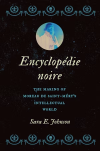
|
Encyclopédie noire: The Making of Moreau de Saint-Méry’s Intellectual World | If you peer closely into the bookstores, salons, and diplomatic circles of the eighteenth-century Atlantic world, Médéric Louis Élie Moreau de Saint-Méry is bound to appear. As a lawyer, philosophe, and Enlightenment polymath, Moreau created and compiled an immense archive that remains a vital window into the social, political, and intellectual fault lines of the Age of Revolutions. But the gilded spines and elegant designs that decorate his archive obscure the truth: Moreau's achievements were predicated upon the work of enslaved people and free people of color. |